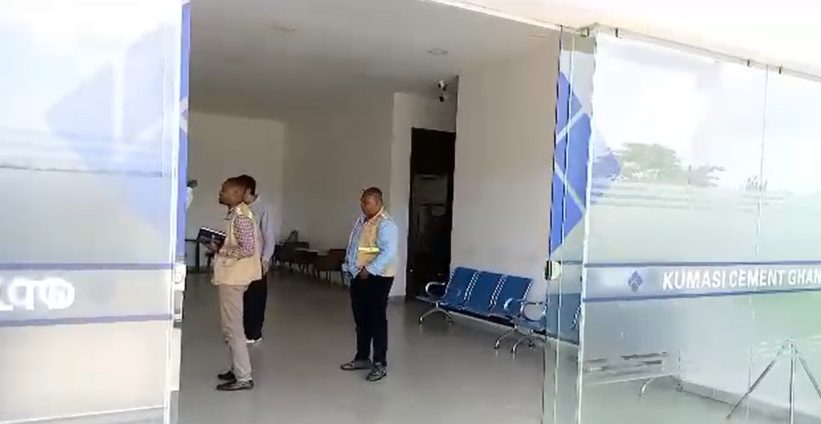Ghana’s performance has improved marginally by one point from its 2017 score of 40, according to the 2018 Corruption Perception Index (CPI).
At least, Ghana was placed 78 out of 180 countries with a 41 percent score in the 2018 Corruption Perceptions Index (CPI) released worldwide this morning by Transparency International (TI).
“This score is a positive departure from the continuous drop the country has been experiencing since the year 2015,” a release by the Ghana Integrity Initiative (GII) stated.
Read the full release on the 2018 CPI below.
PRESS RELEASE
CORRUPTION PERCEPTIONS INDEX (CPI) – 2018
Accra, 29th January 2019 –
The 2018 Corruption Perceptions Index (CPI) released worldwide this morning by Transparency International (TI) scores and ranks 180 countries and territories by their perceived levels of public sector corruption. The 2018 CPI draws on 13 surveys and expert assessments to measure public sector corruption giving each country a score from zero (highly corrupt) to 100 (very clean).
According to TI, the 2018 CPI reveals that the continued failure of most countries to significantly control corruption is contributing to a crisis of democracy around the world.
Global Highlights
In this year’s index, Denmark and New Zealand top with 88 and 87 points, respectively. Somalia, South Sudan and Syria are at the bottom of the index, with 10, 13 and 13 points, respectively. The highest scoring region is Western Europe and the European Union, with an average score of 66, while the lowest scoring regions are Sub-Saharan Africa (average score 32) and Eastern Europe and Central Asia (average score 35).
More than two-thirds of countries score below 50, with an average score of only 43. Since 2012, only 20 countries have significantly improved their scores, including Argentina and Côte D’Ivoire, and 16 have significantly declined, including, Australia, Chile and Malta.
Ghana’s Performance
The 2018 CPI scores Ghana 41 out of a possible clean score of 100 and ranks the country 78 out of 180 countries/territories included in this year’s index. The 2018 CPI used nine (9) out of the thirteen (13) data sources of independent institutions with highlevel of credibility to compute the score for Ghana. The data sources include:
World Bank Country Policies and Institutional Assessment
World Economic Forum Executive Opinion Survey
Global Insight Country Risk Ratings
Bertelsmann Foundation Transformation Index
African Development Bank Country Policy and Institutional Assessment
World Justice Project Rule of law Index Expert Survey
The Political Risk Service International Country Risk Guide
Varieties of Democracy Project (V-Dem)
Economist Intelligence Unit Country Risk Service
The 2018 CPI score shows that Ghana’s performance has improved by 1 point from its 2017 score of 40. This score is a positive departure from the continuous drop the country has been experiencing since the year 2015.
The following are Ghana’s CPI scores from 2012 when the scores became comparable – 2012 (45); 2013 (46); 2014 (48); 2015 (47), 2016 (43); 2017 (40) and 2018 (41).
Several factors including policies and initiatives by government and state institutions implemented during the period under consideration could have accounted for this improvement.
The enhanced performance of the Audit Service and the Auditor General in discharging their constitutional mandate and ensuring the protection of the public purse could have made some impact on the 2018 CPI score. The paperless port clearing system under the Digital Inclusive Agenda and the establishment of the Office of the Special Prosecutor to fight corruption and corruption related offences in spite of the office’s teething challenges could have equally impacted on Ghana’s 2018 CPI score. The ongoing Judicial Service reforms including efforts to promote high standards of integrity amongst Judges and Magistrates, and Judicial staff, and the E-Justice System cannot also go unmentioned.
These linkages being made are important as they correlate to some of the indicators experts assessed. For instance, some of the surveys used to compute the 2018 CPI focused on the extent to which the Executive can be held accountable for its use of funds; the extent to which public employees within the Executive are required to account for the use of resources, administrative decisions, and results obtained. These levels of accountability are enhanced by transparency in decision making, public audit institutions, access to relevant and timely information, and public and media scrutiny.
Under other surveys, responses to corruption questions on how common is it for firms to make undocumented extra payments or bribes connected with the following: imports and exports; public utilities; annual tax payments; awarding of public contracts and licenses and obtaining favourable judicial decisions were provided.
Ghana’s Performance Vis-a-vis Other Sub-Saharan African Countries
It is worthy of note that, although Ghana performed better than 37 other Sub-Saharan African countries including Benin 40, Swaziland 38, Gambia 37, Tanzania 36, Ghana nonetheless performed below 9 others:
COUNTRY 2018 CPI SCORE 2018 SSA CPI RANK 2018 WORLD CPI RANKING
Seychelles 66 1 28
Botswana 61 2 34
Cabo Verde 57 3 45
Rwanda 56 4 48
Namibia 53 5 52
Mauritius 51 6 56
São Tomé and Príncipe 46 7 64
Senegal 45 8 67
South Africa 43 9 73
Burkina Faso 41 10 78
Ghana 41 10 78
Lesotho 41 10 78
In 2016, Burkina Faso and Lesotho performed below Ghana. In 2017 these two countries performed better than Ghana, however Ghana is now at par with them.
What needs to be done
According to Patricia Moreira, Managing Director of Transparency International (TI), “With many democratic institutions under threat across the globe – often by leaders with authoritarian or populist tendencies – we need to do more to strengthen checks and balances and protect citizens’ rights”. To make real progress against corruption and strengthen democracy around the world, Transparency International calls on all governments to:
strengthen the institutions responsible for maintaining checks and balances over political power, and ensure their ability to operate without intimidation;
close the implementation gap between anti-corruption legislation, practice and enforcement;
support civil society organisations which enhance political engagement and public oversight over government spending, particularly at the local level;
support a free and independent media, and ensure the safety of journalists and their ability to work without intimidation or harassment.
Ghana’s performance notwithstanding, GII is of the opinion that, the country could have possibly scored higher if allegations of corruption during the period under review were expeditiously investigated, prosecuted and appropriate sanctions meted out to culprits.
Specifically, GII recommends that:
Government must take a critical look at elements that promote public sector corruption including patronage, nepotism, secret political party financing, suspiciously close ties between politics and business etc and work to minimise if not completely eradicate them from our society as these affect the perception and experiences of stakeholders in the various surveys that are used to compute the CPI;
GII once again calls on Parliament as a matter of urgency to ensure the passage of the Right to Information (RTI) Bill and the Conduct of Public Officer’s Bill into laws as they are very critical in promoting transparency and public sector integrity necessary for the fight against corruption;
Finally, government must adequately provide the needed resources to enable state accountability institutions perform their functions effectively and importantly facilitate the implementation of the National Anti-Corruption Action Plan (NACAP) and also create an enabling environment which guarantees the security and safety of anti-corruption crusaders including civil society organisations and journalists.
Ghana Integrity Initiative (GII) is the local chapter of Transparency International (TI), the global civil society organisation leading the fight against corruption for the last 25 years.
 Naagyei 90.3 Fm Agyapa
Naagyei 90.3 Fm Agyapa




